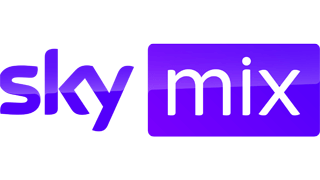Hot on the heals of announcements by the BBC and ITV regarding the end of standard definition (SD) TV broadcasts on satellite, Sky has this week completed a major milestone.
- New Sky Mix channel is not available to viewers using older Sky and Freesat receivers.
- It’s the first time one of its entertainment channels has ceased SD broadcasts after previously piloting the closure of Sky Cinema SD channels.
- Indications that far fewer viewers are still reliant on SD-only receivers prompting broadcasters to re-evaluate the need to simulcast in both HD and SD.
Sky Mix officially launched at 11:00am on Wednesday 18th October, replacing Pick and ushering a new era of free-to-air entertainment from Sky.
But satellite viewers wanting to see some of the free-to-air premieres coming to Sky Mix in the coming weeks will need to be HD ready.
Both Freesat and Sky have only configured the HD version of the channel on their respective Electronic Programme Guides (EPGs). This means that users with older Freesat and Sky receivers have just lost another channel from their line-up. Freesat HD, Sky+HD and Sky Q users will see Sky Mix HD on Freesat 144 and Sky 151 respectively.
The SD version is currently still broadcasting off the EPG, and a small number of Freesat viewers using receivers that haven’t processed the latest channel update on their box may still see Sky Mix linger until the box is reset/updated. Unlike other SD channels, Sky hasn’t listed Sky Mix SD in the 800 channel range.
The decision to relegate the SD version comes weeks before the BBC closes its standard definition channels for good. It confirmed that affected services will close on Monday 8th January 2024. Meanwhile, ITV will begin closing further SD channels, also in January.
How will the switch-off affect users of older boxes?
This means that viewers who don’t upgrade their receiver will find the first two channels missing from their channel list from early 2024. The third slot may not carry the correct regional version of ITV. Other channels throughout the channel list will be missing. BBC Radio will also vanish.
Sky has already removed the SD versions of some of its Sky Cinema channels, meaning only Sky HD, Sky+HD and SkyQ satellite viewers have full access to channels.
The BBC say fewer than expected have come forward to ask for support in moving from a SD to an HD satellite receiver. ITV says over 98% of satellite viewers already have access to HD channels. Many households also have access to either Freeview or online TV services.
Why keep simulcasting?
Remaining broadcasters are now looking at the justification of running both SD and HD services side by side if hardly anyone is still watching SD.
Some Sky channels cost extra if you want to watch in HD. But this doesn’t apply to the large number of free-to-air channels broadcasting on satellite. Channel 4 and Channel 5 haven’t yet confirmed any changes to their SD services, although both broadcasters have made their main channels HD by default on satellite.
The BBC help scheme is the closest there’s been to a co-ordinated attempt to close down SD satellite services. ITV this week piggybacked on the scheme, directing affected viewers to the help scheme website, although it is unclear if ITV is contributing towards the cost of the scheme.
The UK is not alone in winding down SD channels, but HD-only broadcasts are already a reality on satellite and terrestrial platforms abroad. Sky’s European subsidiaries have already phased out SD receivers, forcing subscribers to switch to a newer HD-compatible receiver to keep watching. Any remaining SD services have to piggyback on capacity configured for HD channels, meaning an HD box is required even for SD channel reception.
Ultimately, the reason why many services continue to broadcast in both SD and HD on satellite is contractual. A lack of a firm SD switch-off date from Sky, whose boxes will account for the majority of SD satellite receivers distributed in the UK, means the process is slow and drawn out as existing contracts expire or reach a break clause, and broadcasters can finally get out of simulcasting in SD and HD.
Marc Thornham

